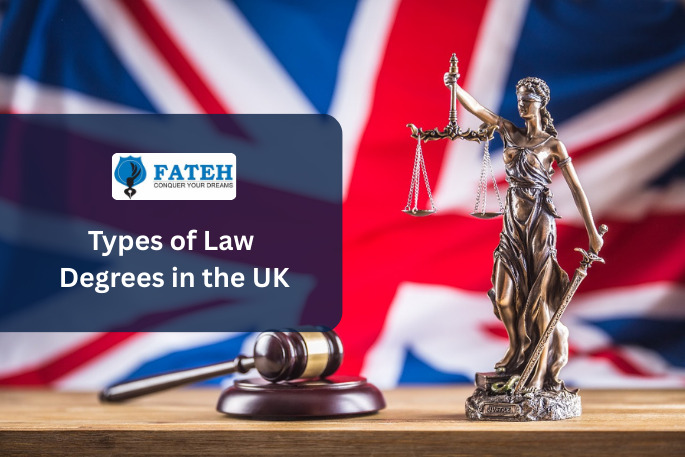Introduction
The global legal industry is pivotal in ensuring the smooth functioning of societies, economies and governance systems. In a rapidly changing world, the demand for legal expertise has expanded beyond conventional legal practices, making law a versatile and in-demand field. Various countries boast an intense legal landscape, with the United Kingdom being one of the most eminent ones. The UK’s legal system is renowned for its historical significance and global influence, providing a strong grounding for legal education and practice. Moreover, the legal landscapes of the United Kingdom and India share deep historical roots, as India’s legal system is largely based on the British common law system. During British colonial rule, India adopted many of the legal principles, judicial processes and court structures from the UK, creating a lasting connection between the two countries’ legal systems. This common foundation signifies that both countries share similar legal frameworks for interpreting laws, handling disputes and ensuring justice.
As legal systems evolve, there are several law degrees that prepare individuals for the challenges and opportunities in the legal profession. These include the Bachelor of Laws (LLB), Master of Laws (LLM), Master of Business Law (MBL), Doctor of Philosophy in Law (PhD in Law) and the Integrated LLM PhD. Each of these degrees offers a unique focus, catering to various aspects of law, from fundamental legal knowledge to advanced, specialised research and practice.
What is a Law Degree?
A law degree is a formal academic qualification that makes one eligible to practice law professionally. It is an elite educational credential that educates students in the knowledge, critical thinking capacity and practical competencies required to interpret and implement laws efficiently. In most nations, a law degree is the key prerequisite for individuals interested in becoming legal professionals, such as solicitors, barristers, judges, legal advisors and others.
Additionally, law study encompasses a broad range of subjects, such as legal theory, the practice of law, its history and ethics. These are the concepts that have an impact on making graduates comprehend the intricacies of legal issues, ranging from individual rights to international relations. Besides this, Law degrees are not just limited to the courtroom or legal practice alone but also equip students with skills for non-traditional legal careers in other fields like business, government, finance, technology and the non-profit sector, where legal expertise is an important asset. Many students also consider business management courses in the UK to complement their legal education for corporate careers.
Law Degree Coursework
Law Degree Skills
- Analytical skills: Analytical skills are critical because law graduates should be capable of breaking down complex legal documents, analysing precedents and applying the law to new circumstances. The ability to critically evaluate legal arguments, identify loopholes and craft convincing counterarguments in court are also integral components of the legal practice.
- Research skills: Attorneys and legal consultants must be able to conduct thorough investigations, locate precedents and understand evolving statutes, for which the ability to perform groundbreaking research is extremely paramount. This is because legal research is often the primary step in building a compelling case, so the students are taught how to find and evaluate relevant information, both online and in legal libraries.
- Communication skills: Moving forward, we are always told that lawyers need to present their arguments clearly and persuasively, both in written and oral formats. That is where essential communication plays an imperative role! Whether drafting a legal document, proposing advice to a client, or making an oral argument in court, communication competencies are obligatory in the pioneering field of law. That is why law students are trained to write concisely, persuasively and with precision, skills that extend far beyond drafting legal papers.
- Problem-solving skills: Another vital trait in a competent lawyer are his problem-solving skills. The legal field often requires swift, efficacious and strategic decision-making, especially in high-pressure situations. Therein, lawyers are expected to be ready with adequate solutions to legal problems or to negotiate favourable outcomes for their clients, making problem-solving abilities crucial in their day-to-day tasks.
- Attention to detail: Attention to detail is a prominent hallmark of outstanding law practice. A single overlooked clause in a contract or a misinterpretation of the case can have significant repercussions in the final verdict. Therefore, legal professionals must pay close attention to all the minute details in contracts, court rulings and other legal documents to avoid errors that could impact their client’s reputation or case.
- Negotiation skills: Last but not the least, we have negotiation skills, an ultimate game changer in the volatile arena of law. Whether dealing with clients, opposing parties, or other stakeholders, lawyers are often called upon to find a mutually agreeable solution. As a consequence, developing the ability to negotiate effectively at the correct time is important not only for litigators but for lawyers in corporate, transactional, or advisory roles as well.
5 types of law degrees
- Bachelor of Laws (LLB)
The Bachelor of Laws (LLB) is often the foundational stage for students aspiring to become legal professionals. This undergraduate law degree provides a rudimentary knowledge of legal systems and frameworks. For regular courses, it usually takes three years to complete. The LLB offers an in-depth understanding of various areas of law, including constitutional, criminal and contract law.
In many countries including the UK, earning an LLB degree is the foremost step taken by those wanting to pursue additional qualifications, such as the Legal Practice Course (LPC) or the Bar Professional Training Course (BPTC) in order to qualify as solicitors or barristers. Although the LLB is the foundation of a legal career, students are usually able to tailor their degree by specialising in fields like international law, environmental law or human rights law. The LLB is also a great qualification for those who might want to have a career in business, government, or other sectors where legal knowledge is needed.
- Master of Laws (LLM)
The Master of Laws (LLM) is a postgraduate degree designed for individuals seeking to deepen their knowledge in a particular area of law. While the LLB provides elementary legal knowledge, the LLM enables students to specialise in specific legal fields such as international law, intellectual property, criminal law, human rights or commercial law.
As for the duration of the programme, the LLM degree usually takes one year to complete for regular students. Upon completing the degree, graduates can seek tremendous opportunities in law firms, multinational companies, or the public sector. This degree can also be a stepping stone for those interested in teaching law at a higher education level. Many international students pursue the LLM to gain expertise in global legal matters, which is especially valuable for lawyers working in corporate or global legal firms.
- Master of Business Law (MBL)
The Master of Business Law (MBL) is tailored for professionals working in the business sector who want to expand their understanding of legal principles related to business operations. It is ideal for individuals working in finance, corporate sectors, or consulting roles. The MBL programme covers critical areas such as corporate governance, mergers and acquisitions, competition law, intellectual property and commercial dispute resolution.
This degree is designed to equip students with the legal knowledge necessary to navigate the increasingly complex regulatory environment businesses face in today’s globalised world. It is an excellent option for professionals who wish to advance their careers by understanding the intersection of law and business practice,s as it provides valuable insights into corporate legal issues.
- Doctor of Philosophy of Law (PhD in Law)
The PhD in Law is the highest academic qualification in the field of law as this research-intensive programme is designed for aspirants who wish to contribute original scholarship to the field of law. PhD candidates typically choose an area of law to explore in-depth, such as constitutional law, international law or legal philosophy and complete a thesis that advances the body of legal knowledge.
Taking a glance at the career prospects, PhD law graduates often pursue esteemed roles in academia, teaching and legal research. Understanding <a href=”https://www.fateh.education/blog/uk-intakes/” target=”_blank”>UK intakes</a> throughout the academic year is important for planning your application to these advanced programs. Moreover, they can secure employment as legal consultants or in research institutions, where they can influence policy and legal reforms. For those interested in advancing legal theory or engaging with global legal issues, a PhD offers the chance to make a noteworthy contribution to the legal field.
- Integrated LLM PhD
The Integrated LLM PhD is a dual-degree programme that combines both the Master of Laws and PhD in Law. This programme is ideal for students who want to engage in high-level legal research immediately after completing their LLM degree. The first phase of the programme involves coursework and examinations for the LLM, while the second phase focuses more on in-depth research for the PhD thesis.
Graduates of this programme are well-prepared to lead cutting-edge research in law and often pursue careers in academia, international organisations or public policy. Inevitably, the Integrated LLM PhD is a challenging yet highly rewarding programme for those looking to make an impressive scholastic or professional contribution to the burgeoning field of legal studies.
What can you do with a law degree?
- Solicitor: Solicitors are the ones who provide legal advice to clients, represent them in lower courts and handle a myriad of legal matters, from contract disputes to property transactions. A separate process is followed to become a solicitor in the UK.
- Barrister: Barristers specialise in higher courtroom advocacy, taking forward the work done by a solicitor and representing clients in trials, hearings and appeals. They are often experts in specific areas of law and provide legal counsel to solicitors. A separate process is followed to become a solicitor in the UK.
- Legal Advisor: A legal advisor works in both the public and private sectors, providing counsel on legal issues such as mergers, employment law and regulatory compliance.
- Corporate Lawyer: Corporate lawyers advise businesses on legal matters such as mergers, acquisitions, contracts and regulatory compliance, often working within large corporations or established law firms.
- Judge: Judges preside over legal proceedings in courts of law, ensuring that cases are conducted fairly and impartially and ultimately making decisions on legal matters.
- Human Rights Advocate: These professionals work to protect and promote fundamental human rights, often in the non-profit sector, government agencies or international organisations.
- In-House Counsel: In-house legal advisors work for a specific company or organisation, offering legal counsel on various internal matters, including compliance, contracts and risk management.
- Mediator/Arbitrator: These professionals neutrally help parties resolve disputes, mainly outside of the courtroom, providing alternative dispute resolution methods such as mediation and arbitration.
FAQs on types of law degrees
The "best" LLB for you will depend on your area of interest in specialisation. Although a general LLB offers a comprehensive knowledge of law, you may choose an LLB with an emphasis on a particular discipline, say criminal law or commercial law, if you are passionate about that area.
Lawyers specialising in corporate law, intellectual property law and tax law tend to earn the highest salaries. An LLM or MBL in corporate law can open the door to high-paying positions in top law firms or multinational corporations.
Your interests and financial objectives will determine the "best" lawyer for you. While corporate lawyers typically make the most, human rights lawyers and criminal defence attorneys can be equally fulfilling personally and professionally.
In conclusion, selecting the right law degree is a significant decision that depends on individual interests, goals and career aspirations. Whether pursuing a foundational LLB or advancing through postgraduate programmes like the LLM or PhD, law degrees provide a broad range of opportunities. Through legal education, students gain the tools necessary to succeed in various career paths, both in and outside of the legal field. So, are you still waiting for a sign to chase your dreams? Slide into a chat with our expert counsellors at Fateh Education and let’s fast-track your journey to the legal world!


